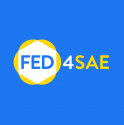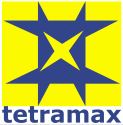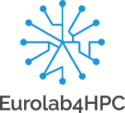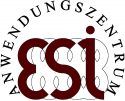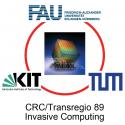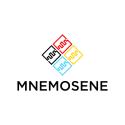5.8 Special Session: The ARAMiS II Project - Efficient Use of Multicore for safety-critical Applications
Date: Wednesday 27 March 2019
Time: 08:30 - 10:00
Location / Room: Exh. Theatre
Organisers:
Timo Sandmann, KIT, DE
Jürgen Becker, KIT, DE
Chair:
Timo Sandmann, KIT, DE
Safety-critical applications in the domains automotive and avionics as well as the future topic Industry 4.0 show a clear and still increasing demand for digital processing power. This demand for processing power is needed, e.g. for highly automated driving and connected machines with realtime requirements. Furthermore, this demand is substantiated by an increasing interaction and integration with other systems and services. This justifies the usage of multicore technology in embedded systems in the near future, which is already successfully applied in other application domains like PCs, tablets and smartphones. However, safety-critical applications in the above-mentioned domains show many additional complex requirements, which at present can, if at all, only be fulfilled partly with an unjustified high development effort. The proposed special session shall present a summary of the most important achieved results and research topics regarding an efficient use of multicore systems in safetycritical applications.
| Time | Label | Presentation Title Authors |
|---|---|---|
| 08:30 | 5.8.1 | ARAMIS II PROJECT OVERVIEW Speaker and Author: Rolf Ernst, TU Braunschweig, DE Abstract This talk covers a global overview of the ARAMiS II project and presents current challenges for using multicore-based architectures in safety-critical application domains like Automotive, Avionics and Industry Automation. Furthermore, a summary is given how these challenges were addresses in the ARAMiS II project. The focus of the ARAMiS II project is on optimization and advancement of the development processes, especially development tools and platforms for the efficient usage of multicore technology. |
| 08:52 | 5.8.2 | ARAMIS II DEVELOPMENT PROCESS FOR MODEL-BASED MULTICORE SOFTWARE DEVELOPMENT Author: Kuntz Stefan, Continental AG, US Abstract This presentation introduces the ARAMiS II development process for model-based multicore software development. As the main goal of the research project ARAMiS II is to evaluate, design, implement and validate existing or new methods, tools and platforms for the efficient use of multicore-based platforms in the domains Automotive, Avionic and Industry Automation, a mainly top-down driven development process is developed supported by a consistent modeling approach. |
| 09:14 | 5.8.3 | METHODS AND TOOLS SUPPORTING MULTICORE DEVELOPMENT Author: Bernhard Bauer, University of Augsburg, DE Abstract The talk on methods and tools of the ARAMiS II research project presents the different aspects of multicore development. One of the main goals is the realization of the developed concepts through tools supporting the different aspects of multicore development, e.g. temporal correctness of the system design, scheduling, etc. Furthermore, the integration and interoperability issues of these tools are important, as they have to be connected to a toolchain by specified in- and output artifacts. Depending on the targeted application domain, the design methods and tool chain must cover several aspects, e.g., fail-operational system design, performance and/or timing requirements. |
| 09:36 | 5.8.4 | AUTOMOTIVE POWERTRAIN DEMONSTRATOR Author: Sebastian Kehr, Denso Automotive Deutschlang GmbH, DE Abstract This talk presents an industrial use case build and evaluated in the ARAMiS II project. It shows an efficient development supported by toolchains, which allow migrating existing software to modern multicore systems efficiently, also in safety-critical domains. The overall goal is to ensure, that the migration process to multicore itself is fast, leads to high quality software and is to the most part automated, e.g. needs few inputs from developers. |
| 10:00 | End of session Coffee Break in Exhibition Area
On all conference days (Tuesday to Thursday), coffee and tea will be served during the coffee breaks at the below-mentioned times in the exhibition area. Lunch Breaks (Lunch Area)On all conference days (Tuesday to Thursday), a seated lunch (lunch buffet) will be offered in the Lunch Area to fully registered conference delegates only. There will be badge control at the entrance to the lunch break area. Tuesday, March 26, 2019
Wednesday, March 27, 2019
Thursday, March 28, 2019
|



